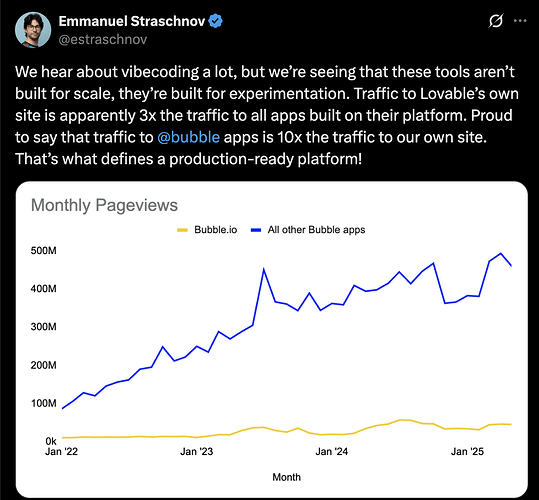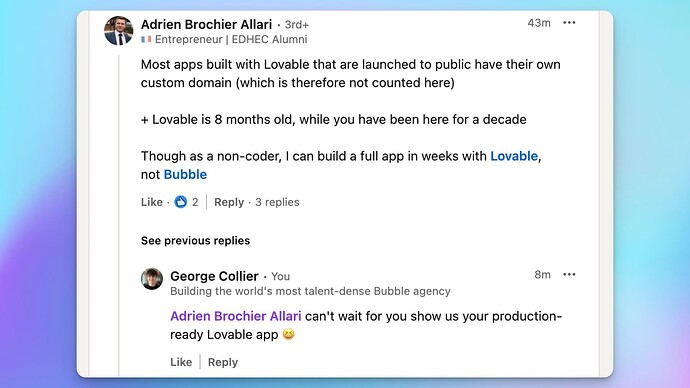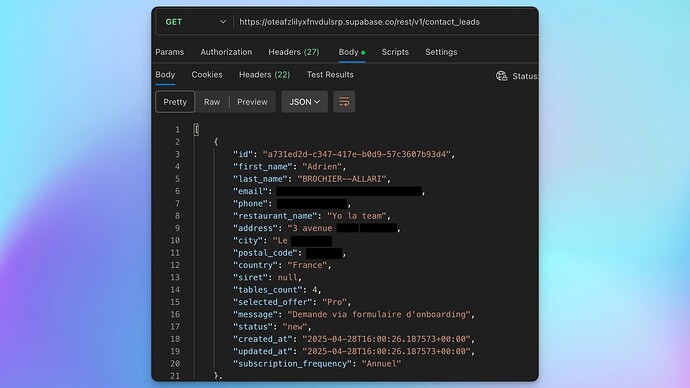Personally, the relevance I think depends on your skillset and resources (time, money, skills/people with said skills). AI is a TOOL, but it cannot alone replace those resources - and you cannot 100% trust the output, since it only knows how to do things it was trained with the knowledge (and let’s face it - most of us have no idea what training data was used) - so you need to know a little about what you’re doing instead of blindly trusting the output.
I have played around with AI tools in the platform, I regularly use private AI solutions in my day job so am well-versed in prompting “language” - and even then, I run into issues all the time with native code and in bubble. In more cases than not, AI coding “bots” tend to be trained with knowledge that is everything from absolute stupidity and bad practice, to exceptionally optimal code structures - so your mileage may vary.
As to the relevance of the platform - it is a great solution if a) you are a “lone ranger” trying to build something from scratch whilst lacking technical resources (e.g. coders and infrastructure), or b) if you are a founder trying to build something quickly and focus on building the company and not coding. You definitely do NOT want to be building a B2C app with it though due to WU model.
I personally can write very complex code when I need to, but as a founder working alone - I don’t want to sit there all day writing code, debugging, standing up deployment infrastructure and pipelines, patching infrastructure, security a cloud environment, working out hosting, etc. etc. etc. - so a platform like this saves me that massive headache and allows me to build unimpeded. With this said, bubble will NOT be my production platform due to the WU model - so I build the backend on Xano (extensively using native JS code in lambdas) for portability to enable the move away from bubble, or even Xano when I’m ready.
I still stand by that the WU approach is the biggest thorn in the side of this whole platform, as it effectively defeats the benefits of point B above, in that you are forced to continuously optimise your “code” to reduce WU to maintain affordability. But this doesn’t make the platform irrelevant - if you have the funding, you are good to go and just create poorly optimised code without any real issue. This, ironically, is an area bubble probably needs to focus on next with their AI tools - working out how to use it to optimise the code for their users to avoid bill shock. I halted the launch of my app due to the WU model making it completely unaffordable (my app is a B2C app, which is now a VERY poor use case for bubble thanks to the WU model), so the relevance of the platform also depends on the type of app you are building. I would not see an issue with a B2B or internal app in the bubble platform. Had I known about the planned WU model pricing - I would have stayed well clear of this platform and probably gone with something else for my B2C use case. Then again, AI doing native code wasn’t a mainstream thing 5 years ago, so this was a great option back then…




